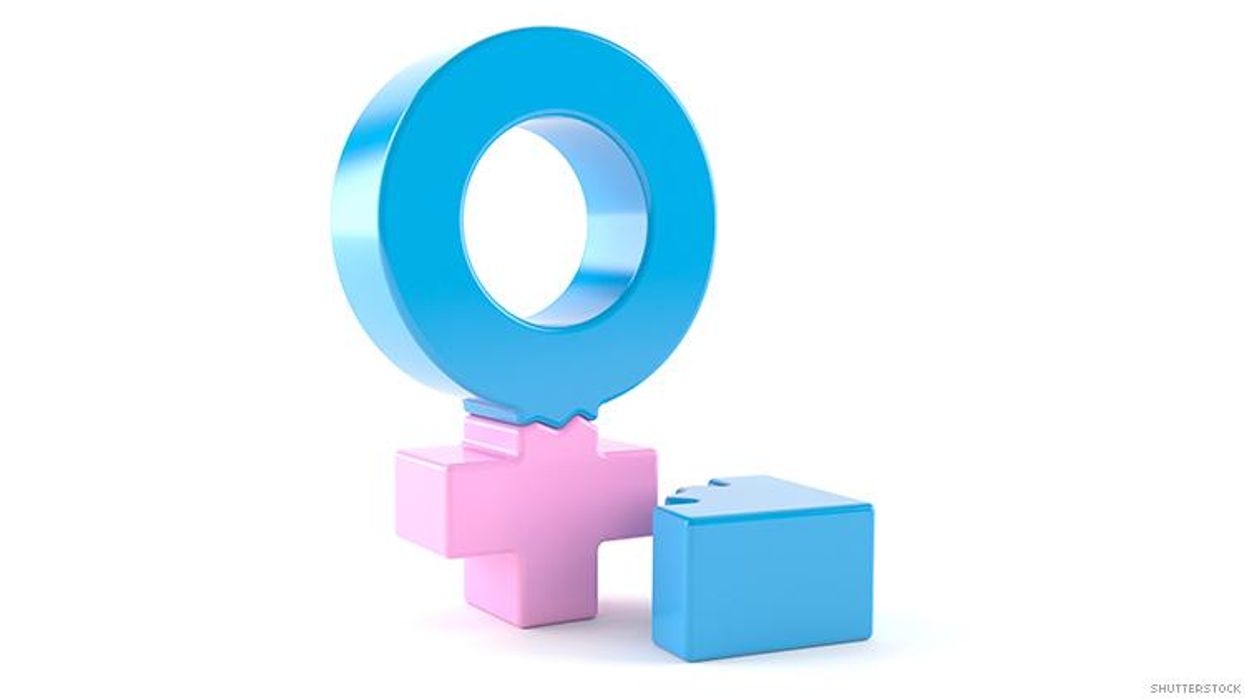We all have unpopular opinions. The willingness to share them varies from person to person and the risks they're willing to face in order to share it. What makes another difference is how unpopular the opinion is, and how much it goes against popular sentiment. Often these unpopular opinions stay unshared because they are based in hate, sometimes they aren't shared because they incite reactions from people that border on hate, and sometimes they aren't shared because there are no outlets for them. However, sometimes they aren't shared because they're difficult things to discuss and the drama comes with a price many aren't willing to pay. I think it's time to share one of mine in reaction to someone else's.
This past weekend, Andrea Long Chu wrote an essay for The New York Times titled "My New Vagina Won't Make Me Happy," about how the process of transition has not only not brought her unhappiness but has made her even more dysphoric. She feels that her upcoming gender confirmation surgery will probably not alleviate this feeling either. Her depression comes from her own feelings of despair at being born trans and her grief at not having always been a woman. I hate that she feels this way, I truly do. I have felt all of those things in my life, and I'm confident in saying that all transgender people have felt it at one time. However, her essay, released as Trump is trying to make it government policy that transgender people do not exist and while our rights are being eroded was irresponsible on Chu's part, as well as The New York Times. Truly I respect her pain, I do. However, that leads me to where my unpopular opinion in the trans community comes in.
For a long time, the trans community has had a much-deserved hostile view toward therapy and psychology. Through most of our history, we have seen them as gatekeepers to transition who have held many of us back from being able to seek the life affirming treatments we know would bring us more happiness and peace. This loathing and fear of therapists has become codified in our community and any arguments that say that we should seek out counseling, therapy, and perhaps even medical intervention in the emotional turmoil that being transgender can bring, is met with a raging hostility.
I hate this viewpoint.
While yes, without a doubt there are many psychologists who would stand in the way of our transition, and that there are many who would rather "cure" us by denying our trans-ness, which flies in the face of the overwhelming amount of evidence to the contrary that we would be happier with transition. Most therapists are educated enough and compassionate enough to understand our issues and are willing to help us these days as evidenced by the growing numbers of people who are able to access the care they need. However as Chu does point out in her essay, simply having access to trans-affirming surgeries and hormones does not necessarily bring happiness.
I know full well that being transgender comes with an emotional price. I spent most of my life hating and fearing who I was inside, and it took years of therapy to come to the point where I could even speak the word "transgender" out loud to someone else when describing myself. Along with that self-hate and fear came drinking, self-destructive behavior, depression, and more. Even after I finally began therapy and came out, which did bring a great sense of emotional relief, there were still things that brought emotional pain. There were issues of feeling out of place, of my "passability," and what I call "lost time." Lost time is often one of the most difficult to cope with. That feeling of regret of having not been born the gender we identify with, the lost youth and socialization that comes with it, and the life experiences as varied as prom to having children.
How this affects us is very much a "your mileage may vary" situation. Personally, I sometimes still have issues with recognizing I'm no longer "one of the boys" and relating to other women. Sometimes it comes it swinging wildly between behaviors considered feminine or masculine. I attribute this to being one of those "over compensators" in my pre-transition days when I played high school football and served in the military. However, for the most part I have accepted my trans-ness, my past life, the things I missed out on and won't get to experience. I still have my issues, but they largely intersect with other issues.
Yet, many have not come to accept their trans-ness and the emotional pain it brings, which yes, is very much there. Simply gaining access to hormones or surgery is not the magical cure-all that some make it out to be. Chu argues in her essay that the only way to obtain hormones and surgery is to pretend that those treatments will make the pain go away. She goes on to argue that doctors like to see themselves and present themselves as kings and queens over someone else's body. However, as I learned in my own experiences with transition, as well as dealing with my father's heart issues or my mother's cancer, doctors cannot even begin to interact with you until you go to see them and accept that there is a problem. My mother and father refused to recognize the signs that they were ill and it eventually killed them horribly, and my reluctance to accept my trans-ness led to years of substance abuse and self-destructive behavior.
Emotional pain and trauma isn't easily medicated away with a pill, surgery, or Dr. Oz device; and quite frankly no sane, rational, or ethical medical practitioner would say so. Being transgender has an unfair amount of emotional toil that comes with it and whether it comes from group therapy, counseling sessions, or whatever, one must accept that they need help and seek it out. There is no nobility in knowingly suffering through emotional pain of being transgender. There is no hall of martyrs or sainthood bestowed for not seeking help and suffering, just more pain.
Chu, while correct that transition will not bring a magical cure from the pain chose the wrong forum to express her own agony. The New York Times opinion page is not a therapist's office. While yes, speaking out about the pain she feels does normalize the idea that hormones and surgery are not a cure for emotional trauma, but it's not the place to offer a nihilistic outlook on trans existence. Many trans people find solace and relief through medical intervention, while many need years of therapy to work through their issues. Countless transgender people feel hopeless, helpless, and skirt the line of suicidal ideation because of the overwhelming fear of a therapist blocking access to medical care and so they don't seek help. The New York Times failed the transgender community by publishing the article without rebuttal or a counterview, or even a list of resources for people who are fighting these battles.
The transgender community needs to feel that they can accept that there is an emotional toll to our lives and that they need the help of a trained therapist. They need to accept that hormones and surgery is not a magical cure-all. They also need to come to terms that propagating these myths within the community causes more harm than good. Fearing that outsiders will use these things to attack us is foolish because if it wasn't this, it would be something else. However, suffering without help while knowing there is a problem is a weapon we are handing to these people.
AMANDA KERRI is an Oklahoma-based writer and comedian, and a regular contributor to The Advocate. Follow her on Twitter @Amanda_Kerri.




































































Charlie Kirk DID say stoning gay people was the 'perfect law' — and these other heinous quotes